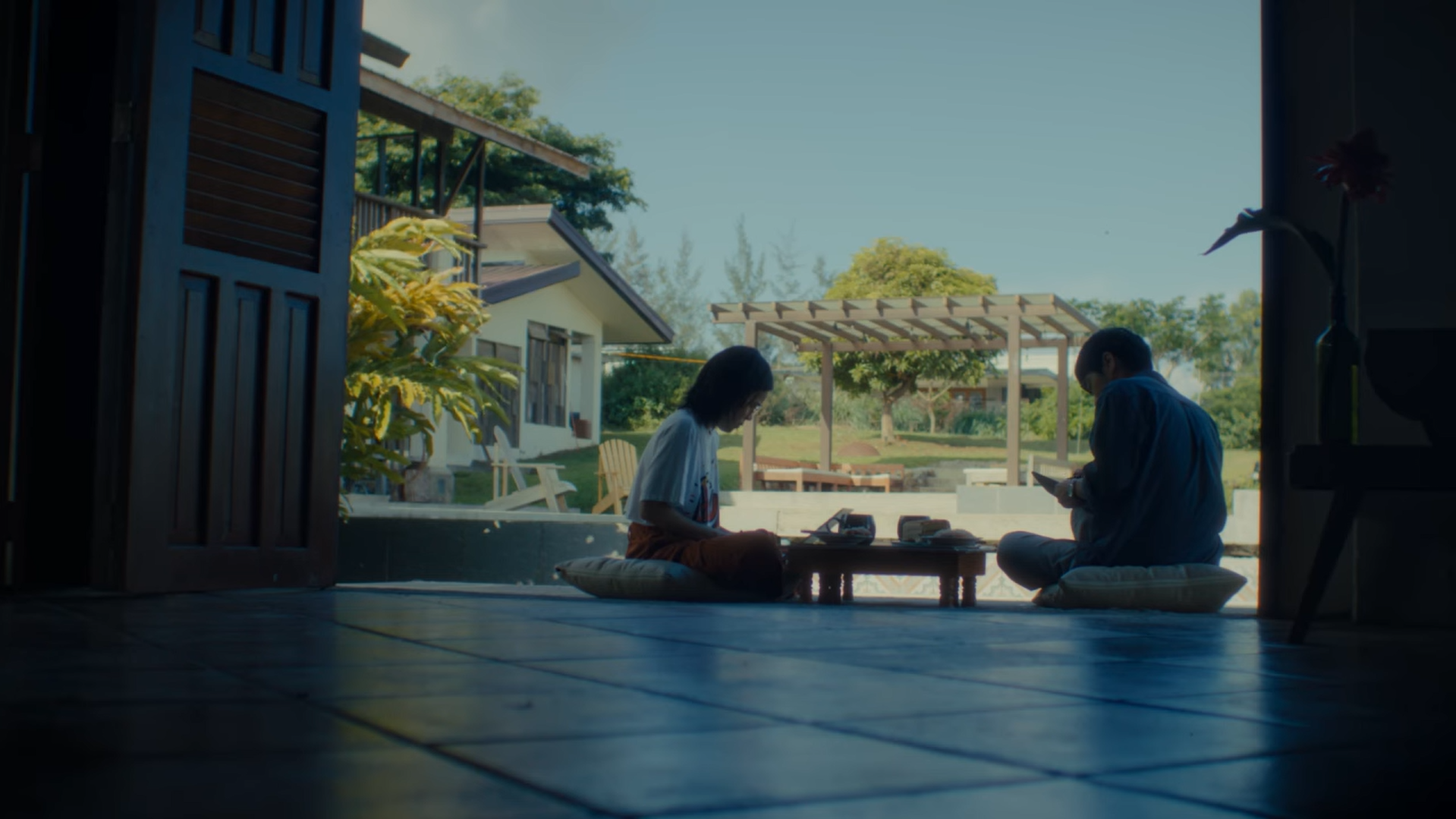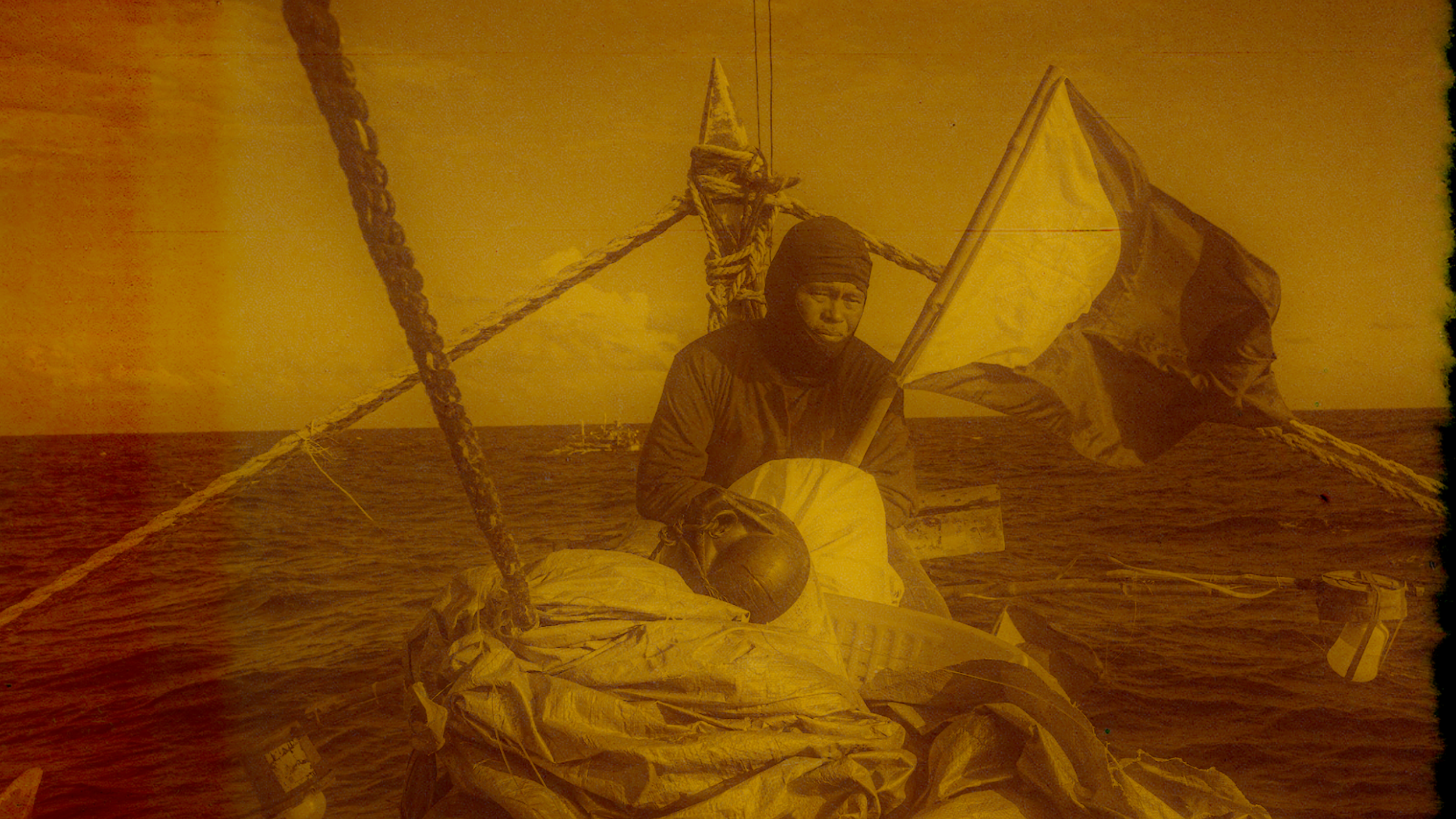‘All the Things I Leave You’ and the Stories We Want Pinoy BLs to Tell
‘All the Things I Leave You’ and the Stories We Want Pinoy BLs to Tell
What do Filipinos want from BL stories?
It’s a question that I haven’t given much thought to, but one that occasionally crosses my mind like the memory of someone you miss but can no longer open up to. So when I sat down and the lights began to dim for Jade Castro’s latest project, All the Things I Leave You (Patawid), I found myself in a constant state of curious surprise. Here are Jorge and Kiko, a pair of guys with a world of differences between them. Jorge (Benedix Ramos), an ambitious restaurant manager, waits for his grandfather to give him the blessing of owning it. Kiko (Justin Paul Basobas), the restaurant’s first delivery rider, first catches the heir apparent’s ire before his trust, and then his heart. Yet acts of kindness and kinship clear the way for them to find love in an Ilocos town that, ultimately, doesn’t mind their romance. It initially required a lot of suspension of disbelief for me to accept how easily they could fall for each other until I heard Mindy Kaling’s words echo in my mind:
I regard romantic comedies as a subgenre of sci-fi, in which the world operates according to different rules than my regular human world. For me, there is no difference between Ripley from “Alien” and any Katherine Heigl character. They are equally implausible. They’re all participating in a similar level of fakey razzle-dazzle, and I enjoy every second of it.
And it was multiple episodes of squeal-worthy moments and infrequent reminders of being young, queer, and in love in the Philippines that audiences may easily enjoy. A lot of these moments consist of emotional walls between Jorge and Kiko being torn down, built up, and then gently cleared away again. If it were a rollercoaster, it wouldn’t be one of those scarily complex ones since there’s a good chance you’d know how the story goes. But it’s like a ride you share with someone you want to never forget, and for that All the Things I Leave You at least lets you off with the belief that you can believe in life, love, and life after love even if it’s not so easy to live and love.
Presented in Ilocano, All the Things I Leave You marks Castro’s second go at the Boys’ Love (BL) genre, following 2020’s Boys Lockdown. Here, Castro enlists the help of co-writer Lance D. Collins (My Partner), producer Alemberg Ang and filmmaker Xeph Suarez, among others. Together, they establish the pair’s feelings and make sure that the challenges to their love story don’t run short on sparks. There’s a moment in the first episode that establishes a moment of trust between its leads. After their first day at work, Kiko offers Jorge and his sister a ride on his motorcycle. It’s played for laughs, seeing the three of them riding together and the visible cringe on Jorge’s face. Minutes later, when Jorge needs to make a long trip, Kiko makes the same offer for a ride that Jorge takes on. This time, the hesitation on Jorge’s face has eased into trust. It’s not quite romantic yet, but the connection between them has definitely been established. Equally interesting is the point in their lives at which they meet each other: as young adults who have stopped going to college due to financial constraints. It’s a story the show shines on for sure, though I wish it was something they could have lingered on a little longer.
It’s tough to ask for what stories you can tell and which ones you have to let go of when you only have six episodes for narrative estate, but my, does the show try to make the most of its limited space. The show does try to build a universe around Jorge and Kiko that’s more interesting than its structure can let on. The episodes are prefaced with stories of Tino, Jorge’s grandfather, in his youth as he navigates his own love and loss when he is forced to choose a life of financial promise in Hawaii over his own relationship with another guy. These moments have an air of tenderness that really gave Ramos and Basobas’ charms more time to simmer.
I’m not quite sure why they’re playing the young versions of someone older in their lives, but it’s an endearing touch, really. Maybe it’s because even if they’re only moments, they’re the kind that present-day Jorge and Kiko don’t get to have because the story must keep going for them. As the story goes, you might wonder if they will really overcome the challenges of their rising feelings. But the question of why it’s a love worth fighting for in a time of uncertainty for both of them is something that the show only grazes instead of diving into.
On the way to the finish line, there are questions and people that raise interesting questions that could add more dimension to the inner lives of its leads. Why did one of them have a girlfriend from the city? Why is one of them being courted by the mayor’s son? Will they get to pursue their dreams of going to college again? Who will fall in love first? These questions do get answered, but the race to the confession of love propels them faster towards the end before these stories can really breathe. But when it gets there you can’t help but swoon anyway.
What the show doesn’t really get to leave us with is a stronger connection between Tino and Jorge’s stories. It’s an interesting dynamic of generational contrasts that the show establishes, but there’s not much insight into what happens when they actually see each other for who they are. It’s one of those stories I wish could have been explored, and it’s from here that the question of what Filipinos really want in BL stories comes into the forefront. Since the genre’s local breakthrough in the pandemic-struck 2020, Pinoy BLs possess the emotional stakes that carry the weight of being Filipino and queer: the possibility of facing romantic rejection going with the tension that the parental figures in someone’s life could also reject them too. It’s a theme that could add urgency or additional insight into the central romance and make its resonance run deeper.
So when a Pinoy BL coasts on its leading pair’s chemistry, swaying the audience into mere fandom while using their individual characteristics and circumstances as mere “seasonings,” the romance suddenly feels like only half of the story it wants to tell; the story of how different queer generations continue to love even when the world’s uncertainties leave them shortchanged. Maybe that’s really how things work in the BL universe, and maybe there’s always going to be some questions left unanswered because the romance has to shine brighter than everything else. At least despite its constraints, All the Things I Leave You convinces with certainty that Pinoy BLs will always have a crucial space in Philippine storytelling—flirtatious moments and third world contemplations included.
Note: The version of ‘All the Things I Leave You’ screened for this feature is not the final cut.


















